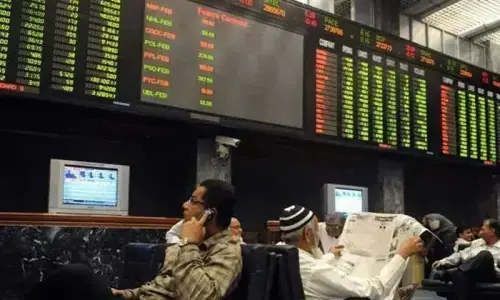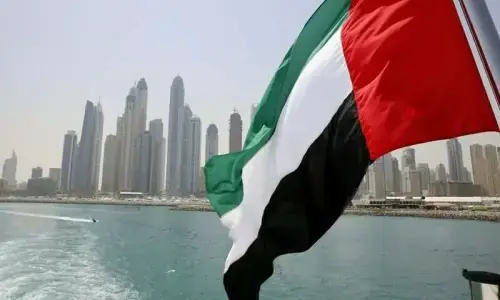US president's son-in-law and White House adviser Jared Kushner said on Monday that it would be in Saudi Arabia's interest to normalise ties with Israel as the UAE has agreed to do.
It would also weaken their common foe Iran's influence in the region and ultimately help the Palestinians, Kushner told reporters during a telephone briefing.
“It would be very good for Saudi business, it would very good for Saudi's defence, and, quite frankly, I think it would also help the Palestinian people,” Kushner said.
Saudi Arabia, the Arab world's biggest economy, has been silent on Trump's surprise announcement last Thursday that the UAE — a close US and Saudi ally — and Israel had decided to normalise relations.
In return, Israel agreed to suspend the annexation of occupied West Bank territories, although Prime Minister Benjamin Netanyahu said the plan was not off the table in the long run.
Saudi King Salman and his son, Crown Prince Mohammed bin Salman, had repeatedly expressed their desire for an independent Palestinian state with economic opportunities, Kushner said.
“What they basically said is that they [...] want to see the Palestinian people have a state and economic opportunities,” said Kushner, the architect of Trump's Middle East peace plan, which was wholly rejected by the Palestinians.
The landmark deal between UAE and Israel is only the third such accord the latter has struck with an Arab country, and raises the prospect of similar deals with other pro-Western Gulf states.
Trump said leaders from the two countries would sign the agreement at the White House in the coming weeks.
Common enemy Iran
Saudi Arabia and Israel have a common enemy in Iran, which most Gulf countries have accused of supporting militant groups in the region.
“It is in the interest of a lot of these countries from a security point of view and from an economic point of view to have relations with Israel,” Kushner said.
“A lot of GCC countries want to have breakthroughs.
“The more that countries come together like Israel and the UAE [...] the harder it will be for Iran to divide and conquer.”
“If you think about the people who don't want Saudi Arabia and Israel to make a peace agreement, the number one opponent for that is going to be Iran,” said Kushner. “That shows that is probably the right thing to do.”
Last week, Iranian President Hassan Rouhani said the UAE's decision to normalise ties with Israel was a “big mistake” and warned “against opening the path of Israel to the region”.
On Monday, Vice Admiral Jim Malloy, commander of US Naval Forces in the Middle East, said he did not believe the recent UAE-Israel deal “heightens tension”.
“I think it is a tense region where partners need to operate closely together,” Malloy said in a telephone briefing.
Stance on US arms sales to Middle East not changed: Israel
Israel has not softened its opposition to any United States arms sales to the United Arab Emirates that could diminish its military superiority as part of the US-brokered normalisation of their ties, Prime Minister Benjamin Netanyahu's office said on Tuesday.
The statement followed a report in Israel's Yedioth Ahronoth newspaper that the Trump administration planned a “giant” sale of advanced F-35 jets to UAE as part of the Gulf country's move last week to normalise ties with Israel.
The US Embassy in Jerusalem and representatives of the UAE government did not immediately respond to requests for comment.
Under understandings dating back decades, Washington has refrained from Middle East arms sales that could blunt Israel's “qualitative military edge” (QME). This has applied to the F-35, denied to Arab states, while Israel has bought and deployed it.
“In the talks [on the UAE normalisation deal], Israel did not change its consistent positions against the sale to any country in the Middle East of weapons and defence technologies that could tip the [military] balance,” Netanyahu's office said.
The Trump administration has signalled that UAE could clinch unspecified new US arms sales after last Thursday's normalisation announcement.
Intelligence Minister Eli Cohen, an observer in Netanyahu's security cabinet, said the decision-making forum had held no discussion about any changes to QME policy and that Israel had not agreed to any changes by the United States.
“Israel has not given its consent to coming along and changing the arrangement,” Cohen told public radio station Kan.































